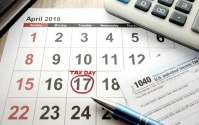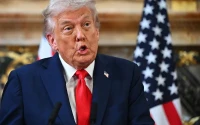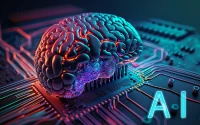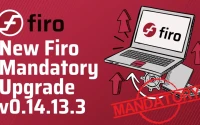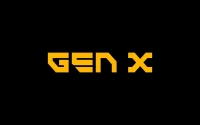The headlines are practically screaming at us. A government shutdown drags into its second week, a political stalemate casting a long shadow over Washington. Jamie Dimon, the CEO of America’s largest bank and a man whose words can move markets, is on the news sounding a stark alarm, a sentiment captured in headlines like JPMorgan CEO Sounds Alarm On Stock Market Fall: 'Far More Worried About That...' - Invesco QQQ Trust, Series 1 (NASDAQ:QQQ), JPMorgan Chase (NYSE:JPM). The IMF is telling us to get used to uncertainty as the “new normal.”
And yet… something extraordinary is happening.
In the midst of all this chaos, as one Stock Market News Review: SPY, QQQ Clinch Record Highs as Government Shutdown Extends to Eighth Day noted, the Nasdaq 100 ETF (QQQ) and the S&P 500 ETF (SPY) just quietly clinched new all-time highs. The QQQ is up a staggering 20% for the year.
What are we to make of this? Is the market completely detached from reality, floating in a speculative bubble just waiting for a pin? Or is it possible that the market is seeing something deeper, a signal so powerful that it cuts right through the noise of our daily anxieties? When I first read Dimon’s comments juxtaposed with the market’s performance, I honestly just sat back in my chair, speechless. Not from fear, but from the sheer scale of the disconnect. It feels like watching someone try to predict the weather using an ancient astrolabe while a Doppler radar system hums quietly in the next room.
The Old Map and the New World
Let’s be clear: the fears are not unfounded if you’re using the old map. Geopolitical instability, fiscal spending, a gridlocked government—these are the traditional storms that have capsized economies for centuries. When a figure like Jamie Dimon points to these risks, he’s reading from a playbook that has been proven right time and time again. He’s looking at the choppy waves on the surface, and from his vantage point, they look menacing.
But what if the vessel has changed? This is the crucial point that I believe the traditionalists are missing. Goldman Sachs strategist Peter Oppenheimer hinted at it when he pushed back against the bubble narrative. He noted that unlike the dot-com era, where companies with little more than a good idea and a ".com" suffix were valued in the billions, today’s tech leaders—particularly in AI—have fortress-like balance sheets and are generating immense cash flows.
Oppenheimer cautions that valuations are "becoming stretched"—in simpler terms, the stock prices are getting expensive relative to current earnings—but this is fundamentally different from a bubble built on pure speculation. A stretched valuation is a bet on future growth; a speculative bubble is a bet on fantasy. And I believe the market is betting on a future that is arriving faster than any of our models can predict.

This isn’t just about a few hot tech stocks. Look at the macro data. Wells Fargo just boosted its GDP growth estimates for 2025 and 2026, citing incredibly resilient consumer spending. That’s not a sign of a fragile economy on the brink of collapse. It's a sign that a new engine is beginning to fire on all cylinders, powerful enough to propel us forward even with the emergency brake of political dysfunction being pulled.
An Engine Fueled by Intelligence
That engine, of course, is artificial intelligence. But thinking of it as just another tech sector is like thinking of the invention of electricity as just a better way to make candles. This is a paradigm shift. We’re not just building new products; we are fundamentally changing the process of creation, innovation, and productivity itself. The speed of this is just staggering—it means the gap between a breakthrough in a lab and a product in your hands is collapsing, creating a compounding wave of progress that makes old economic forecasts look quaint.
This is the signal cutting through the noise. The market isn't ignoring the government shutdown; it's pricing in a future where AI-driven efficiency in the private sector is so profound that it begins to insulate our economic progress from the whims of political theater. It’s like a massive, decentralized problem-solving machine being switched on across the globe, and its hum is starting to drown out the shouting.
We’ve seen this before. Imagine being an investor in the early 20th century. You’d be worried about global conflicts, labor unrest, and financial panics. And you’d be right to be. But the bigger story, the one that truly defined the century, was the rollout of the electrical grid. It was a foundational layer that unlocked unimaginable productivity and created industries that no one could have even conceived of a generation prior. That’s where we are today. AI is the new grid.
This, of course, brings a profound responsibility. If we are building an economy on this new foundation, we have an ethical obligation to ensure the transition is just and the benefits are widely shared. What does it mean for jobs? For equality? These aren't side issues; they are central to building a future that is not only more prosperous but also more stable and humane.
But the potential is breathtaking. What problems could we solve when every scientist, engineer, and artist has an intelligent collaborator working alongside them? What new forms of creativity and discovery will we unlock?
The Signal Through the Noise
So, is the market delusional? I don’t think so. I think it’s the first institution to truly grasp the scale of what’s happening. The disconnect we’re all feeling isn’t a sign of the market’s insanity, but rather a reflection of the lag between the world as it was and the world as it is becoming. The old guard is right to be worried, because the tools they use to measure risk are becoming obsolete. You can’t use a yardstick to measure the speed of light.
The market is making a bold, forward-looking bet. It's a bet that human ingenuity, amplified by artificial intelligence, is a more powerful force than political division and economic uncertainty. It's a bet on us. And for the first time in a long time, it feels like a bet we are poised to win.




